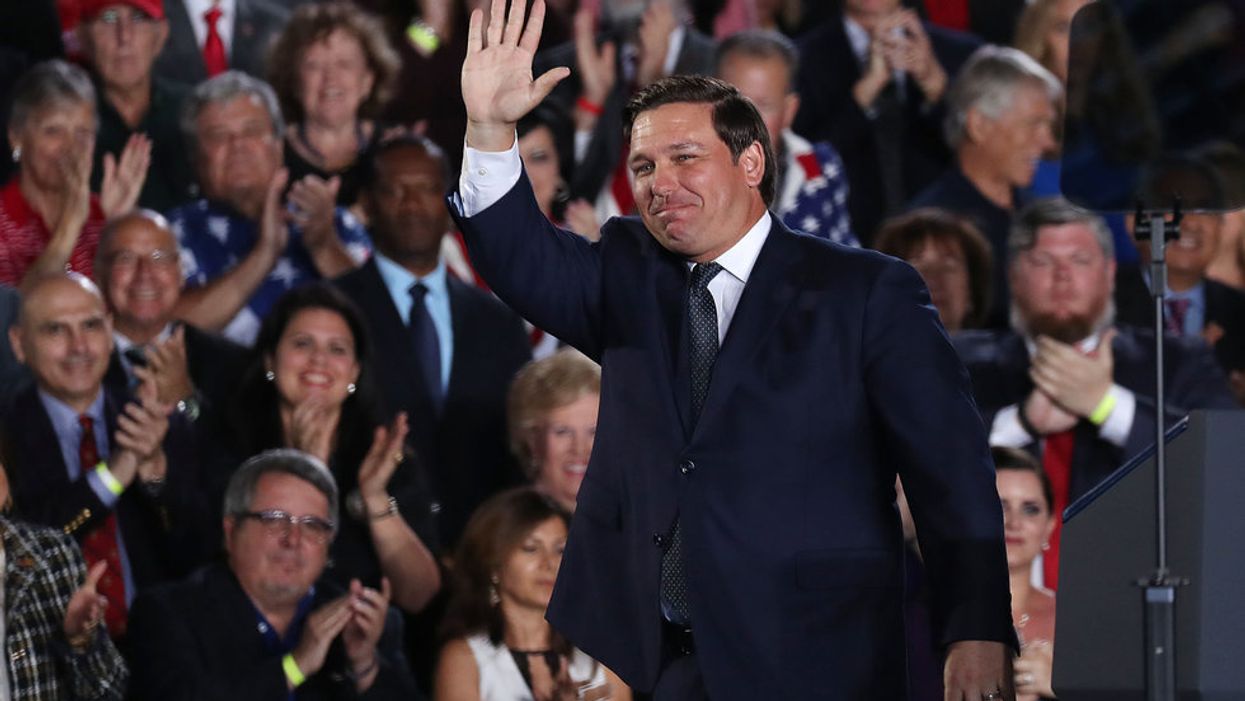The legal battle lines are solidifying over how Florida's restoration of felons' voting rights should be implemented.
A stack of 10 briefs were filed this week at the state Supreme Court, which will hear oral arguments Nov. 6 on whether a new law was improperly written to disenfranchise the very people whose access to the ballot box was supposed to be restored by the will of the voters.
The dispute is one of the most important voting rights cases in years, legally and politically.
Florida is by far the biggest politically purple state in the country, and Democrats see significant potential benefit from adding as many as 1.4 million people with felony convictions to the rolls in time for the presidential election.
Promoters of ballot initiatives and advocates for prisoners' rights hailed last fall's referendum as a historic victory, because turnout was enormous and almost two-thirds of the state supported voting-rights restoration to felons "who have completed all terms of their sentence, including parole or probation," excluding people "convicted of murder or a felony sexual offense."
But the Republican-controlled Legislature voted this spring to limit the scope of the voter-mandated constitutional amendment, by requiring felons to make good on all "legal financial obligations" — mainly restitution, fines and court fees — before being eligible to vote.
The Republicans in charge in Tallahassee — Gov. Ron DeSantis, Secretary of State Laurel Lee and the leaders of the House and Senate — all filed legal briefs sticking up for the new law, saying those payments are part of sentences and so the law is reflecting the language of the amendment.
Voting rights advocates and civil rights groups emphatically disagree and have filed a federal lawsuit to get the law struck down, arguing it amounts to an unconstitutional poll tax and violates a number of other constitutional civil rights. DeSantis has persuaded the Florida Supreme Court to weigh in on the somewhat narrower question of whether the law is within bounds in responding to the wording of the referendum.
"All of these aspects of Florida's sentencing scheme work in tandem to achieve Florida's sentencing purposes," the lawyers for the House wrote in their brief.
Costs and fees "are categorically not terms of sentence because they bear none of the hallmarks of sentencing," the Fair Elections Center said in its brief, because they are "non-punitive and simply serve to compensate the government for the costs of administering criminal justice."
The American Civil Liberties Union, the NAACP Legal Defense and Educational Fund, and the Brennan Center for Justicefiled a brief declaring that the state's history "of denying votes" to African-Americans reveals the GOP's bad faith in linking finances and voting rights.
"Historically, Florida disenfranchised a higher percentage of its adult citizens than any other state in the United States, more than 10 percent of the overall voting age population, and more than 21 percent of the African-American voting age population," the civil rights groups wrote.




















